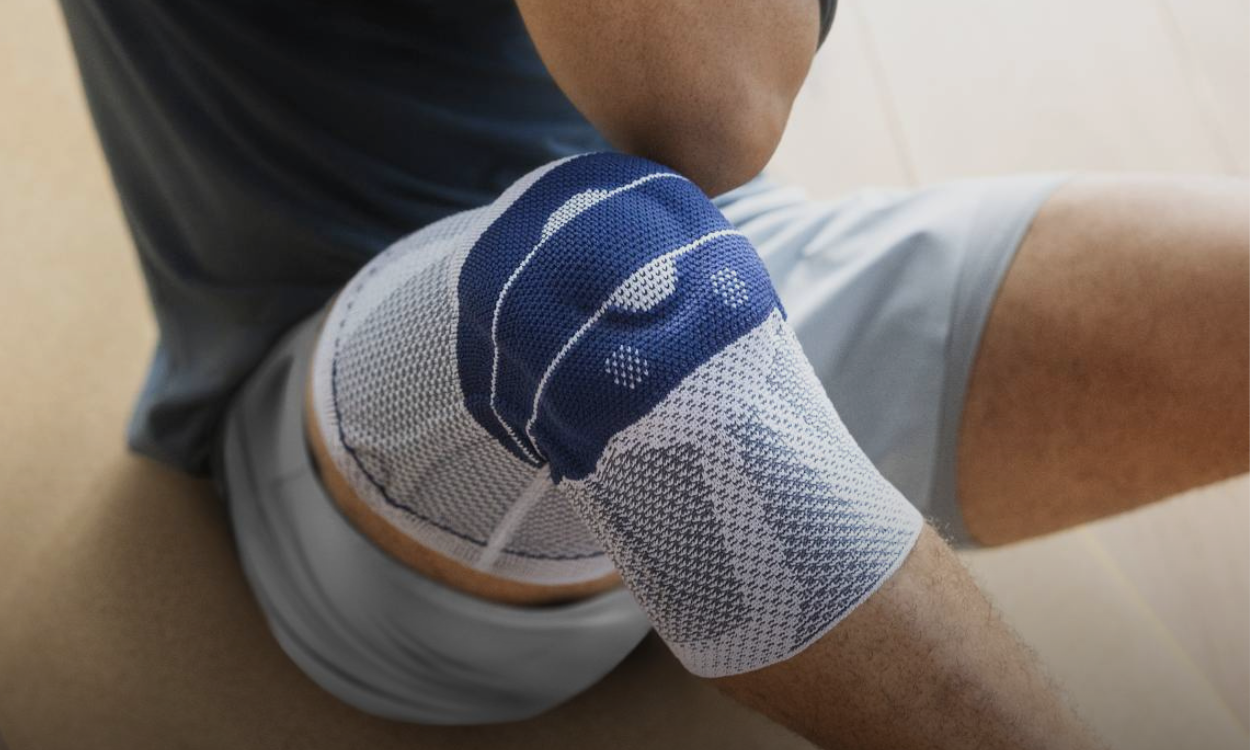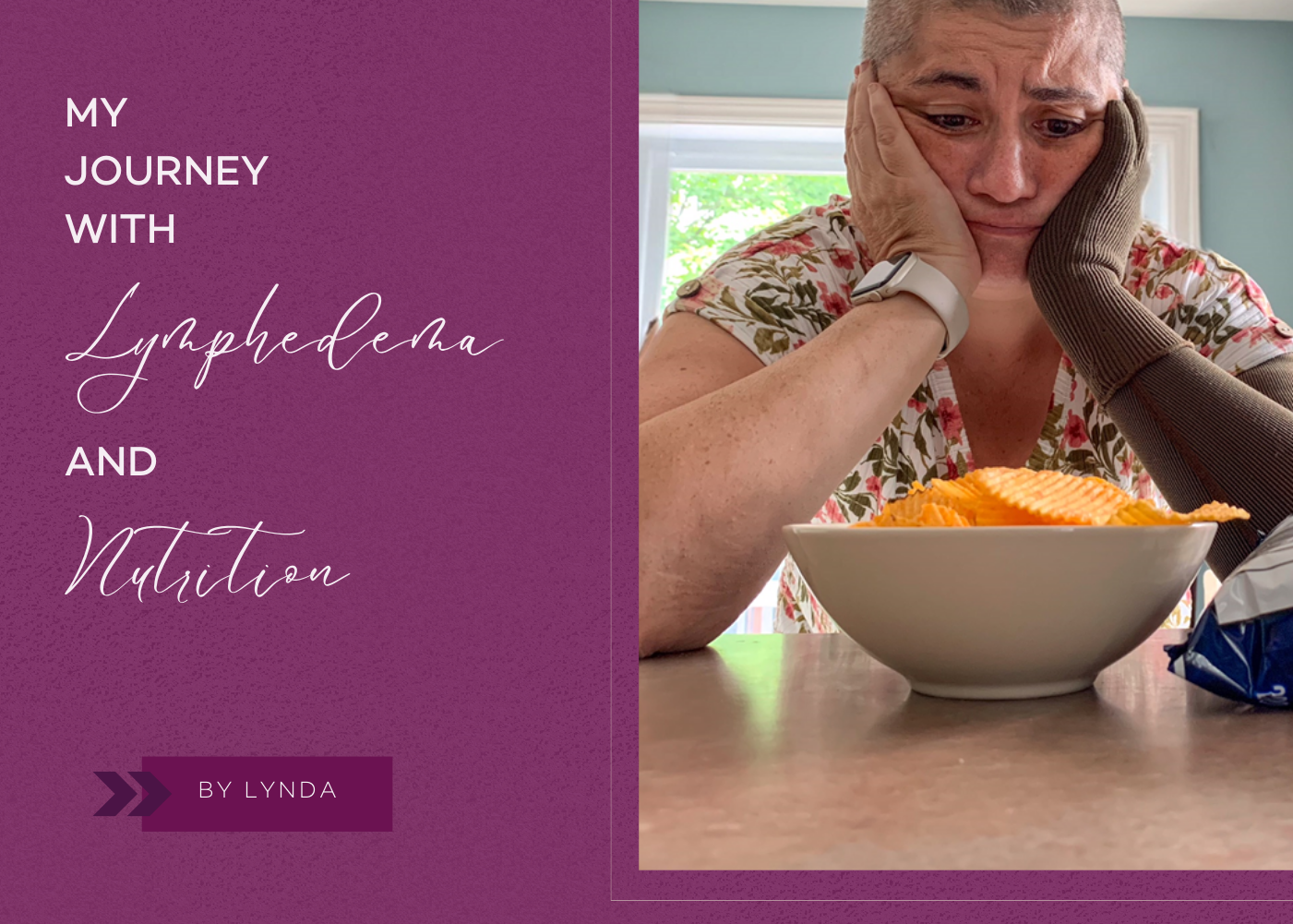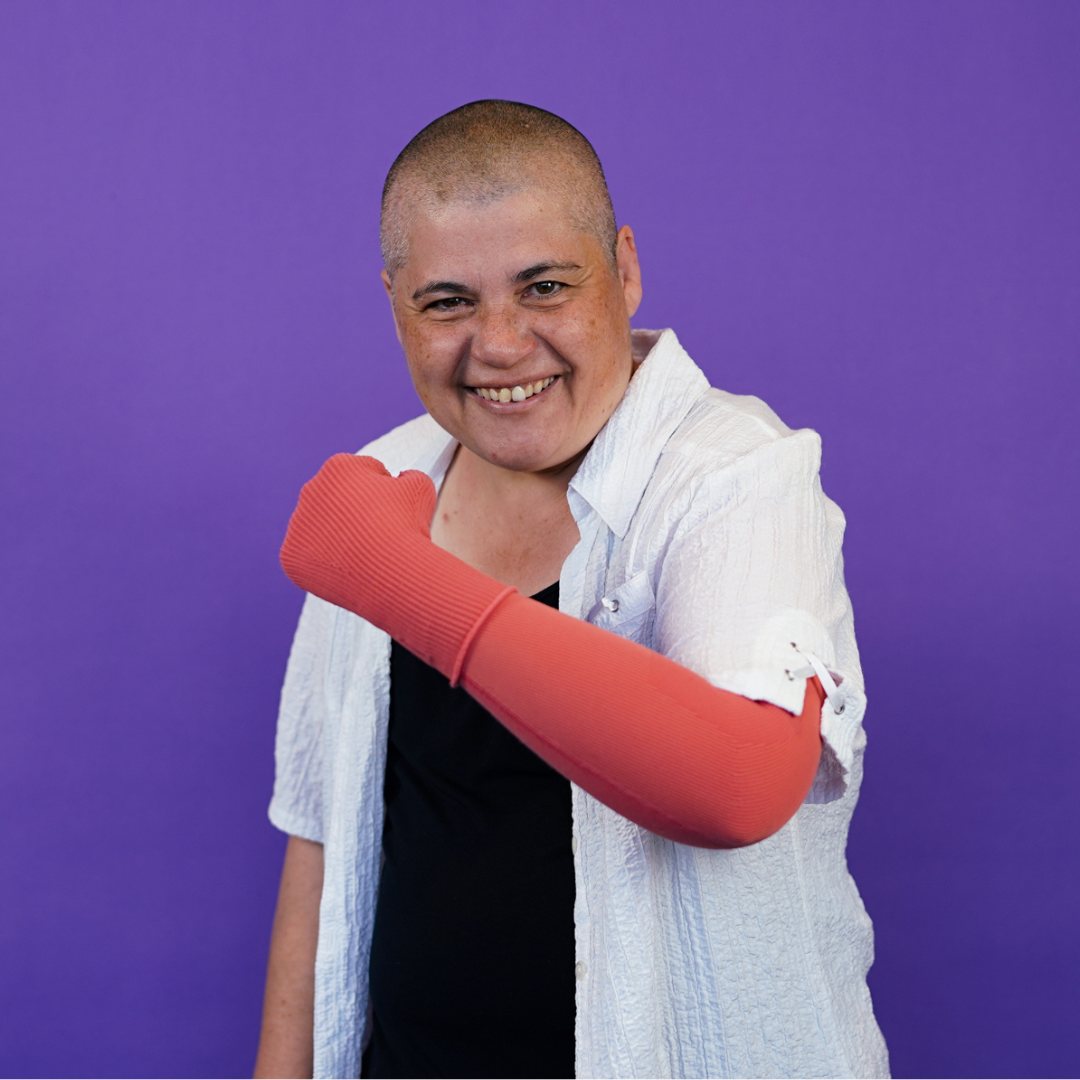Authored by Lynda Ouellet @lynda.ouellet.9
Testimonial: My journey with lymphedema and diet
My name is Lynda, and I've been living with lymphedema for 5 years. Lymphedema, the build-up of lymph fluid in the tissues, can seem an insurmountable daily burden when first diagnosed, especially when you have to reconcile this condition with a suitable diet and a healthy lifestyle. I'd like to share my experience to help others in a similar situation.

At first, I was at a bit of a loss when faced with all the recommendations. My lymphedema therapist explained to me that certain foods can make lymphedema worse by increasing fluid retention and inflammation. One of the first pieces of advice I was given was to avoid sodium. Salt promotes fluid retention, and as lymphedema is already a condition where excess fluid is a problem, reducing sodium is essential. So I've learnt to read food labels carefully and avoid prepared and processed foods, which are often very salty. Ready-made sauces, for example, should be avoided or eaten very rarely.
Limiting dishes with sauces was another challenge. Sauces are often one of my favourite recipes. However, they can be high in fat and salt, both of which should be limited when managing lymphedema. So I've adapted my recipes by using healthier alternatives. For example, I've replaced crème fraîche with plain yogurt in my sauces, which considerably reduces the fat content. I also use spices and fresh herbs to enhance the flavour without adding salt.

Cold meats are another food to avoid. High in sodium and preservatives, they can really exacerbate the symptoms of lymphedema. I used to love a good ham and cheese sandwich, but I've learnt to do without them or replace them with healthier alternatives like grilled chicken or eggs.
Drinking plenty of water is crucial for managing lymphedema. It may seem paradoxical to drink more to reduce fluid retention, but good hydration actually helps the lymphatic system to function properly. I've got into the habit of always carrying a bottle of water with me and drinking regularly throughout the day. This helps me to feel better and to manage my lymphedema more effectively.

Maintaining a healthy weight is also vital for managing lymphedema. Fat can compress the lymphatic vessels and make the condition worse. This doesn't mean that I have to be on a constant diet, but rather that I have to pay attention to my diet and my level of physical activity. This can be an added strain, especially when you're already dealing with compression and other aspects of lymphedema. However, I've found a balance that works for me by incorporating regular moderate exercise, such as walking and swimming, into my routine.
I'm not going to lie, it can be difficult to juggle these demands. Dealing with compression, thinking about diet and exercising can seem overwhelming. But over time I've learned that these efforts are worthwhile. They help me control my symptoms and lead a more comfortable life.
However, it's also important to indulge once in a while. Life with lymphedema doesn't have to be a never-ending series of deprivations. I really like crisps, but I know they can be very salty and greasy. So I want to learn how to make them myself. By cooking them at home, I'll be able to control the amount of salt and oil I use. They'll be just as delicious, but much less harmful to my health. Similarly, I sometimes allow myself a little indulgence, while being aware of the possible impact on my lymphedema. These occasional pleasures make managing my condition more bearable and means I don't feel too deprived.

Over time, I've discovered foods that are beneficial for lymphedema. Fresh fruit and vegetables, rich in antioxidants and fibre, help to reduce inflammation and promote lymphatic circulation. Berries, citrus fruits, green leafy vegetables and nuts have become staples in my diet. What's more, I've rediscovered the pleasure of cooking, knowing that I'm doing my body good. Preparing healthy, tasty meals gives me great satisfaction and allows me to take care of myself while enjoying myself.





